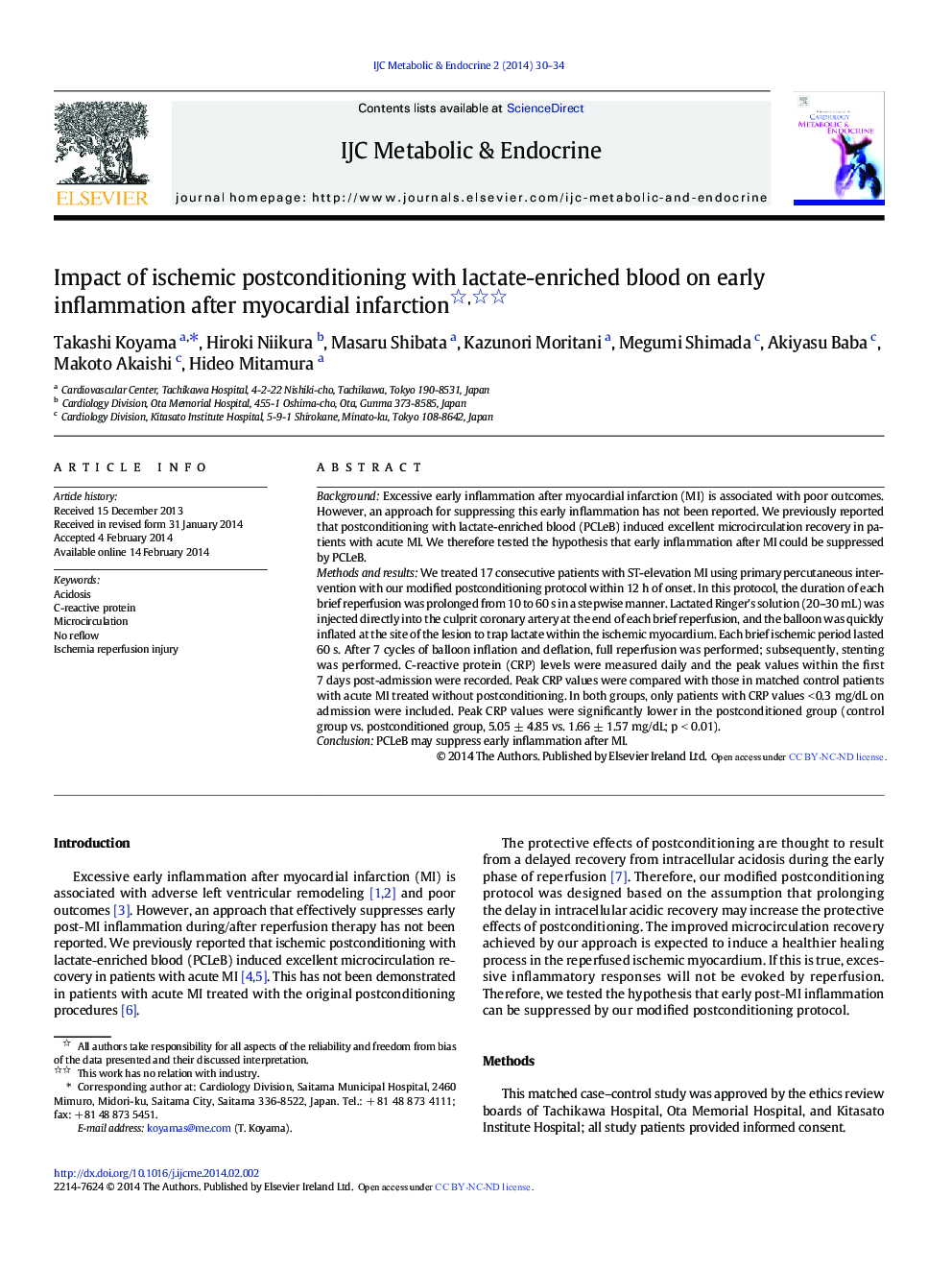| Article ID | Journal | Published Year | Pages | File Type |
|---|---|---|---|---|
| 2927300 | IJC Metabolic & Endocrine | 2014 | 5 Pages |
BackgroundExcessive early inflammation after myocardial infarction (MI) is associated with poor outcomes. However, an approach for suppressing this early inflammation has not been reported. We previously reported that postconditioning with lactate-enriched blood (PCLeB) induced excellent microcirculation recovery in patients with acute MI. We therefore tested the hypothesis that early inflammation after MI could be suppressed by PCLeB.Methods and resultsWe treated 17 consecutive patients with ST-elevation MI using primary percutaneous intervention with our modified postconditioning protocol within 12 h of onset. In this protocol, the duration of each brief reperfusion was prolonged from 10 to 60 s in a stepwise manner. Lactated Ringer's solution (20–30 mL) was injected directly into the culprit coronary artery at the end of each brief reperfusion, and the balloon was quickly inflated at the site of the lesion to trap lactate within the ischemic myocardium. Each brief ischemic period lasted 60 s. After 7 cycles of balloon inflation and deflation, full reperfusion was performed; subsequently, stenting was performed. C-reactive protein (CRP) levels were measured daily and the peak values within the first 7 days post-admission were recorded. Peak CRP values were compared with those in matched control patients with acute MI treated without postconditioning. In both groups, only patients with CRP values <0.3 mg/dL on admission were included. Peak CRP values were significantly lower in the postconditioned group (control group vs. postconditioned group, 5.05 ± 4.85 vs. 1.66 ± 1.57 mg/dL; p < 0.01).ConclusionPCLeB may suppress early inflammation after MI.
